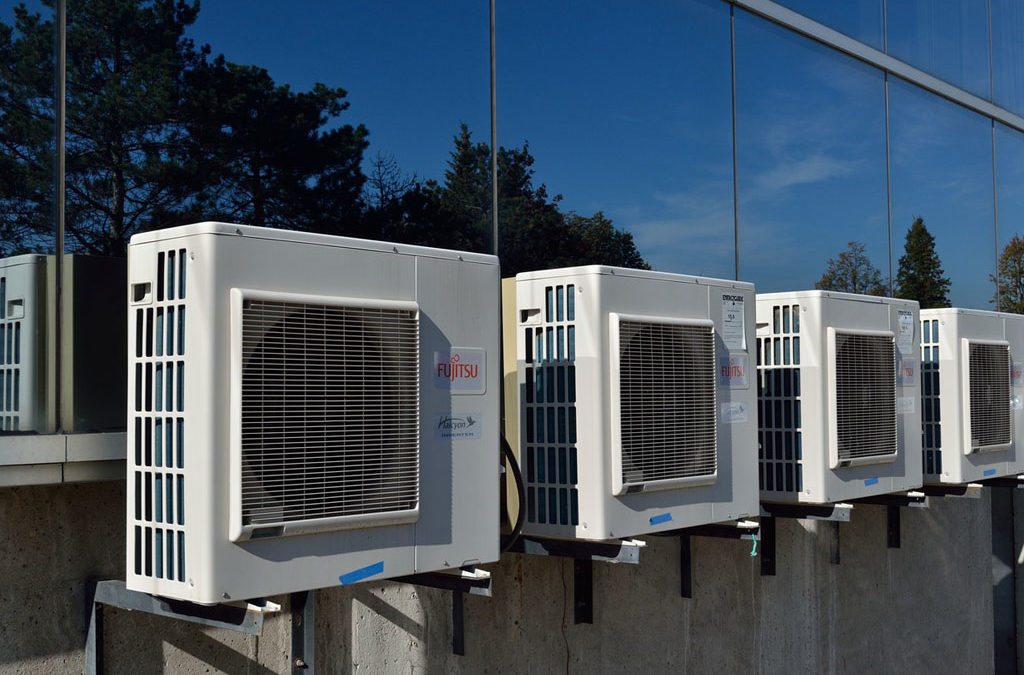Banging
Banging is a sure sign that there’s a loose or broken part within your AC unit. It could be a connecting rod, piston pin, or a crankshaft. Also, something could be wrong with your air conditioning compressor, or your indoor blower is unbalanced. A banging noise can also mean your AC system needs a compressor replacement.
Clanking
Clanking is another sign of a loose or out-of-balance part. The components inside your AC unit have likely failed, and the compressor itself may have become loose. This noise can also mean that the indoor blower or outdoor fan and its blades are out of balance and banging against other parts. These types of issues will only get worse and create more significant problems if they are neglected.
Clicking
The clicking of electrical components when your AC unit start-ups or shuts down is a normal part of the system’s operation. However, constant clicking noises in your air conditioner is not normal. Clicking can be a result of defective control or a failing thermostat. There are a lot of electrical parts inside your AC unit. Therefore, it’s essential to pay close attention to potential electrical issues before they lead to more significant problems.
Buzzing
When your AC unit is loud enough to become a distraction, a buzzing sound is typically an electrical issue. A buzzing noise can be from the contractor relay switch, circuit breakers, fan motor, and other components. If you notice this buzzing noise, you should turn off the unit and reach out to the professionals at Ambrose Air, Inc to prevent further damage.
Humming
A humming noise typically isn’t a severe problem, but it still might mean your air conditioner is off. Loose parts and refrigerant piping can lead to vibration, and if this problem is left untreated, can result in more severe problems. Sometimes humming noises are electrical problems. For instance, if the compressor hums and refuses to start, there can be an issue with the motor. Loose wiring could also be the cause of humming.
Squealing
Blower and fan noises such as squeaks, squeals, and rattles may be transmitted through the duct system. The outdoor fan motors and indoor blower motors squeal when they are deteriorating. The blower wheel and housing will squeal when they malfunction. In some circumstances, this sound is typical for AC units. However, it’s essential to be able to identify when your AC unit makes this sound that it’s a different sound or something that you’re used to.
In Conclusion
It’s important to stay aware of strange noises coming from your air conditioning unit. If the sound is especially loud or concerning, it’s better if you turn off your unit until the professionals at Ambrose Air, Inc can inspect it. The professionals at Ambrose Air, Inc realize Orlando air conditioning repairs can be overwhelming, but our company can resolve the issue while it’s still manageable.

Pat Ambrose has over 40 years of experience in the HVAC industry, serving Central Florida. He tested for and received his class B air conditioning license almost 35 years ago and then improved that to a class A license in the late 90s. Pat and his wife started their own HVAC business in the early 90s, serving Central Florida. Pat still serves as the president of Ambrose Air, Inc., where he works as the chief operating officer. Over his years in business, Pat has served as the president of both the local association (ACCA/CF) and the state association of contractors (FRACCA). His expertise has helped his customers on many occasions, solving air conditioning problems that others had missed.


